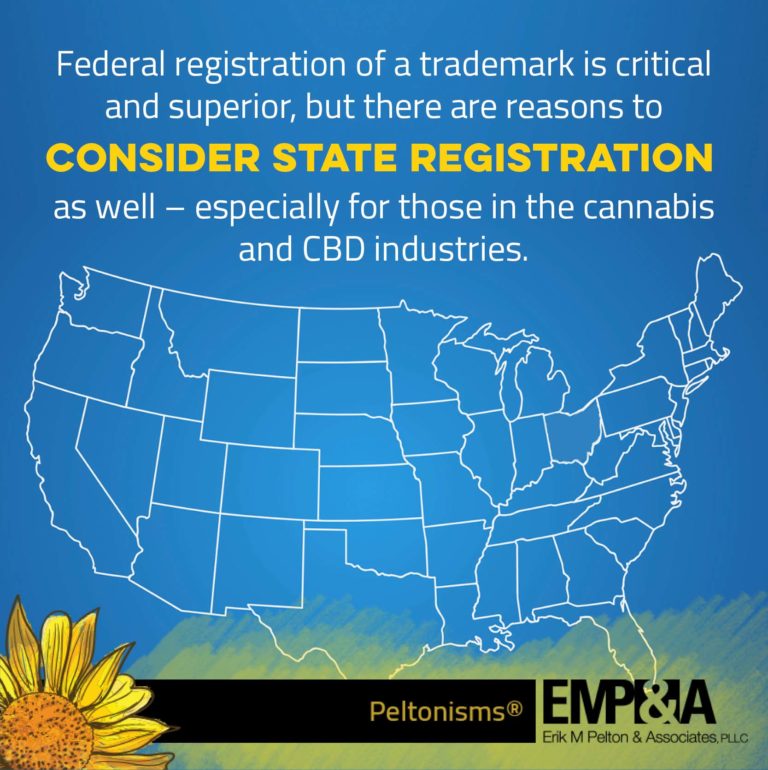The following is an edited transcript of my video State vs. Federal Trademark Registration.
When we’re dealing with the world of trademarks, more than 99% of the time we’re dealing with federal trademark protection with the USPTO, which extends to all 50 states, as well as the District of Columbia and US territories. But there are instances where state trademark protection does come up. Each state maintains its own separate trademark registry from the USPTO’s registry. But again, if you register with the USPTO, you get coverage in all 50 states, and you don’t really have to worry about going into the state you’re in or to any other state and getting protection registration in that state separately, because you’ve got the nationwide registration.
However, if you can’t get nationwide registration at the USPTO, then it’s worth considering filing for state registration. There are a couple of reasons you might not be able to get federal nationwide protection. One is there’s something blocking you from getting it – a possible conflict. If you’re committed to the name or you’ve been using it for a long time already, then there may be some value in getting some state registration instead of federal registration. If your business is hyper-local, and you’re not engaged in any interstate commerce—which is really rare and few and far between—then state registration might be best for you.
The most common scenario we see come up is if your business has to do with cannabis, CBD, hemp or other things that are not fully lawful under federal law, or have challenges to fit within the regulations under federal law. That’s where there’s a real benefit to getting state registration. Lots of cannabis brands will seek to obtain federal registration for non-cannabis touching products or services like apparel or a website. And then they are encouraged—by me at least—to seek state registration in the states where they make sales and do business to cover the products that do touch the plant, since that would invoke the CSA, which currently prohibits registration by the USPTO.





